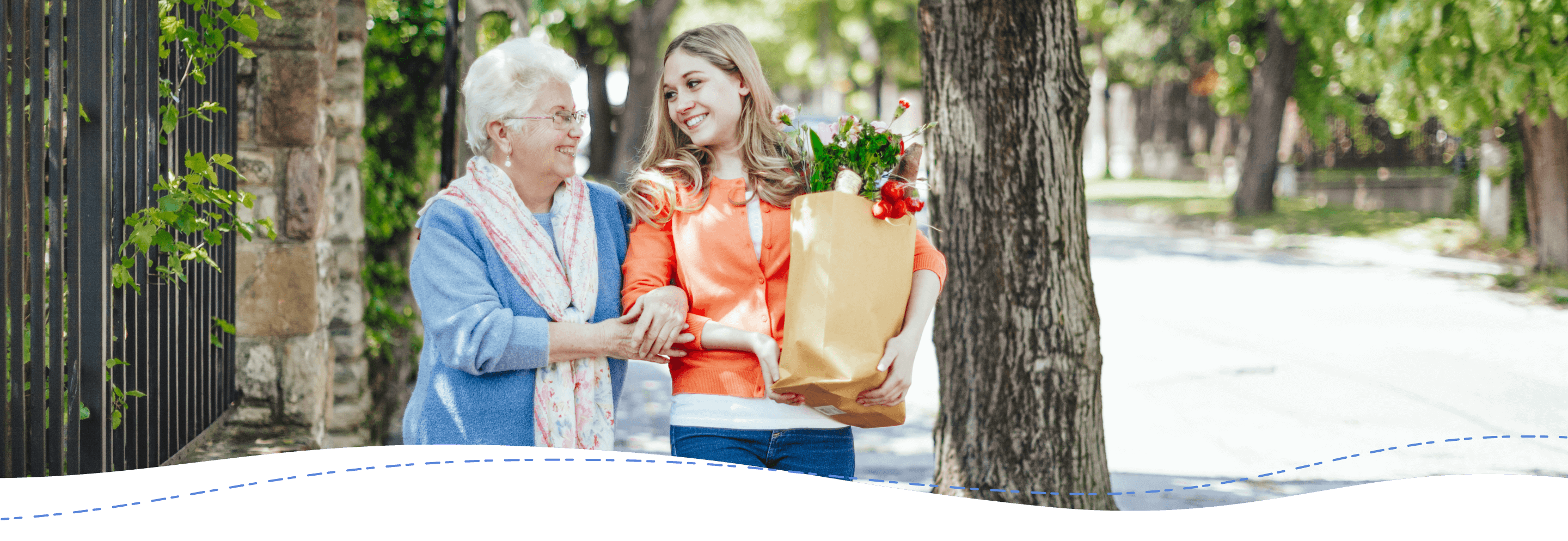Our Helper Matching system
Building deep friendships is incredibly important in life. From our first childhood chums to lifelong buddies, to friends we meet for a season, they all bring richness and immense happiness to our lives.
At Five Good Friends, friendship is a core component of our business. After all, we have ‘friends’ in our name! We know that when people are connected with the homes and communities they love, they have better outcomes. Part of this is when the Member has a connection with the people they’re letting into their home.
That’s why we want our Helpers, the people who care for you or your loved one, to genuinely become a friend. We want you to enjoy each other’s company and enjoy growing a relationship.
But how does that work? Here we explain our Helper matching system and how it can help your loved one live a better life in their own home.
How does Helper matching work?
We call our carers or support workers ‘Helpers’. We’ve chosen this name because they help you achieve you or your loved one’s goals and live more independently in your own homes.
We want our Members to have control and connection with the people who help them. Ideal partnerships are built on mutual respect, and you’re more likely to have this when you build a genuine connection. We use special matching technology to increase the chances of building a friendship that will last.
Building this connection all starts as soon as you or your loved one join Five Good Friends. We have software called Lookout which allows your loved one to build a profile with their interests. When you’re looking for someone to help your loved one, you can request a match. You put in all the information that you think is most relevant.
For example, you might put in information about your loved one’s interests, like cooking, music or gardening. You might put in a language or religion if it’s important that they’re matched with someone with similar values or language skills. The software will do its best to find a Helper who has similar interests, values, and skills.
We then give you a selection of three potential matches to review. It won’t include any identifying information like their picture, name, or age. But it will include information like their biography, qualifications, rates and driving time.
This way, you all can see what you might have in common and decide whether you want to meet them in person.
What if I can’t find someone right away?
If you decide none of the potential matches are right, that’s ok. We will send you another list of three matches the next day. That way you can continue to review Helpers that might suit until you find someone your loved one wants to meet.
If you find a Helper but later decide they’re not for you, it’s also ok. We can provide another set of recommendations for you to review. We have thousands of Helpers and there is almost certain to be the perfect one for you.
Our goal is for this relationship to be the start of a long and collaborative partnership. If something doesn’t feel right, it’s important to speak up. It might take some time, but our Members and Helpers tell us that when they find the right relationships, it’s worth it.
Choosing different criteria for different Helpers
You or your loved one might need a variety of different Helpers so they can achieve their goals. For example, they might need someone for personal care, like dressing and getting ready in the morning. But they also might need help to go on social outings. These Helpers can be tailored to meet those needs.
For personal care, you might want someone who is the same gender as your loved one. They might need to have certain qualifications to help you or your loved one move around. You can highlight that in your match request, so those important elements are taken into consideration.
If you want someone to help you get out and about, gender may not be a factor. But you might want someone who is closer to your loved one’s age and perhaps has similar interests, like going to see concerts or reading. This can help them enjoy the experiences they’re going to share together in the future.
